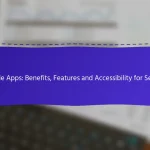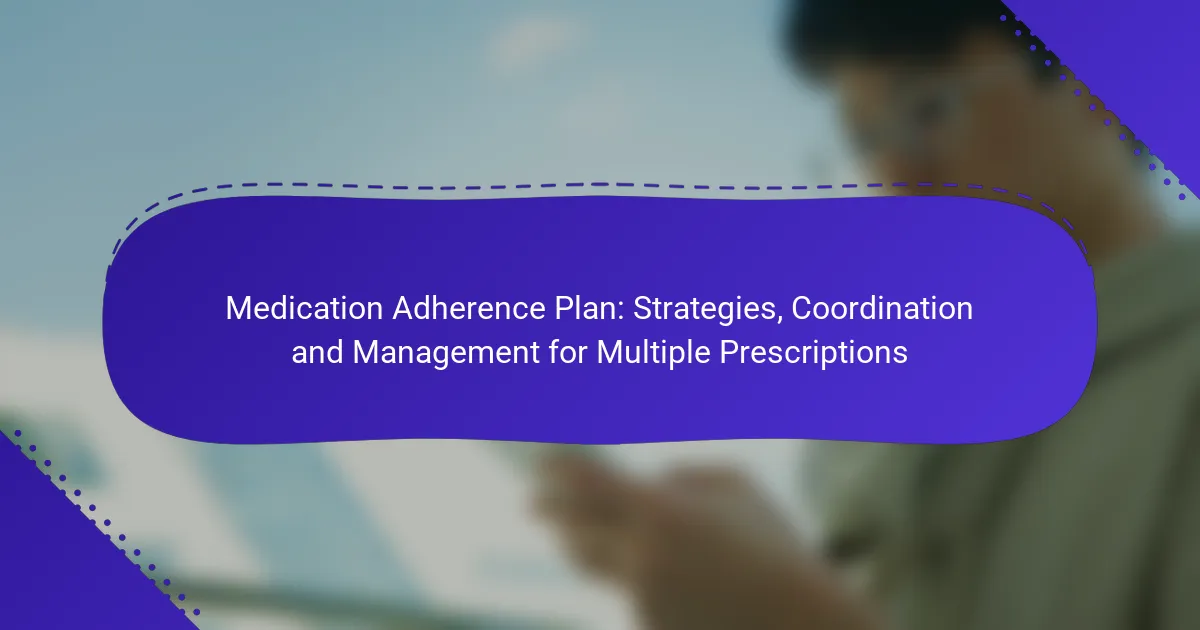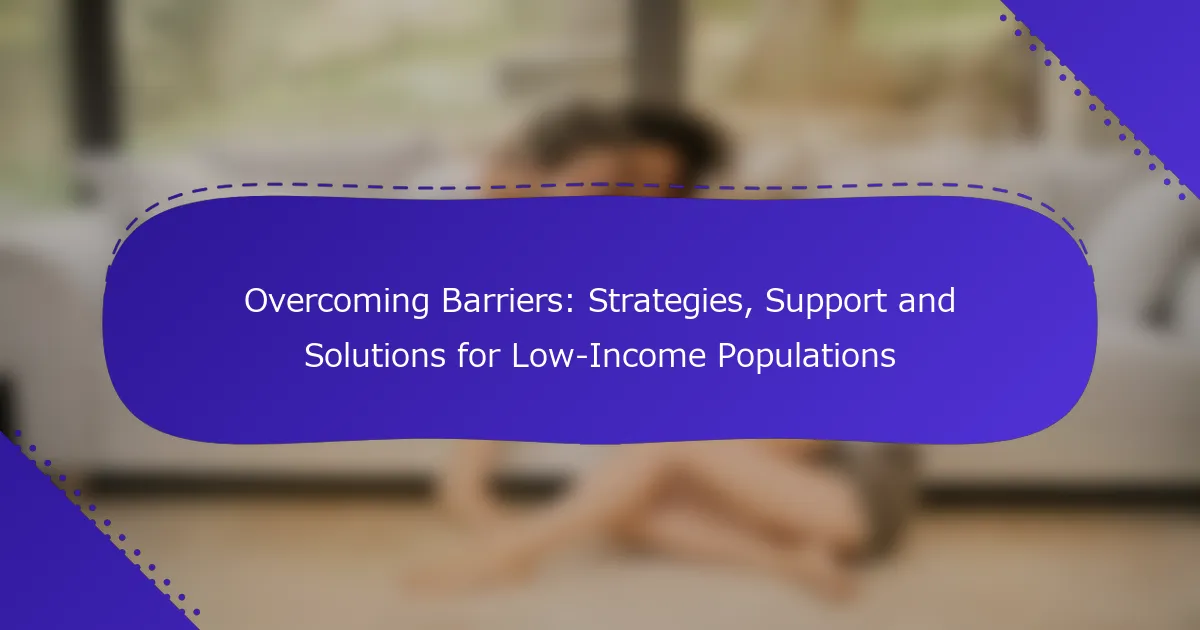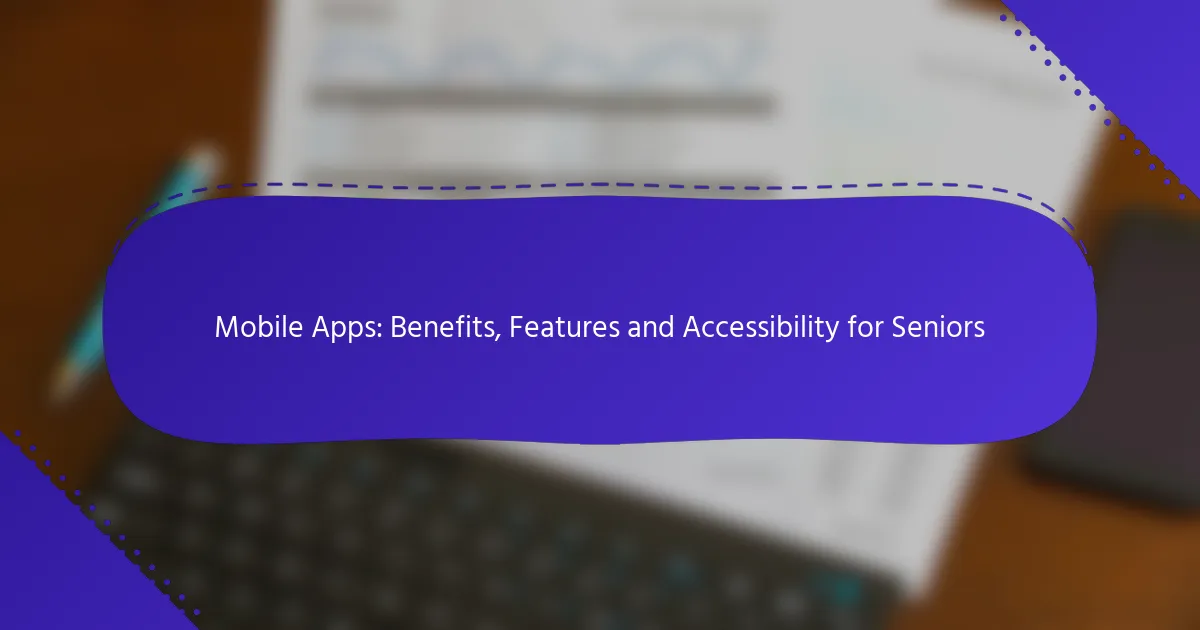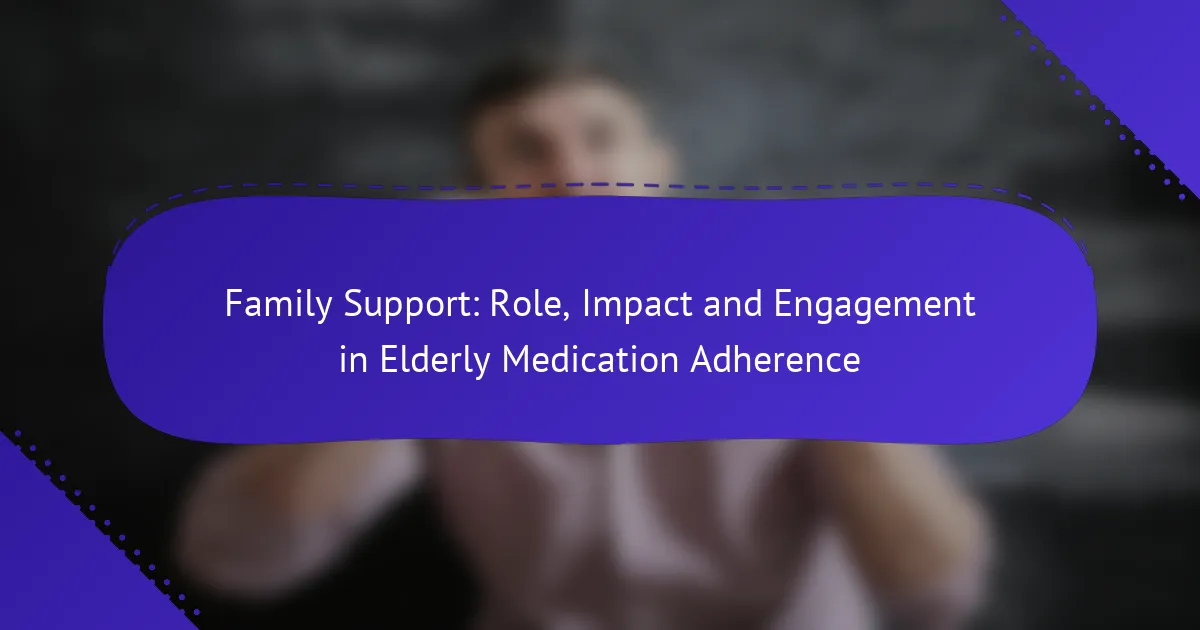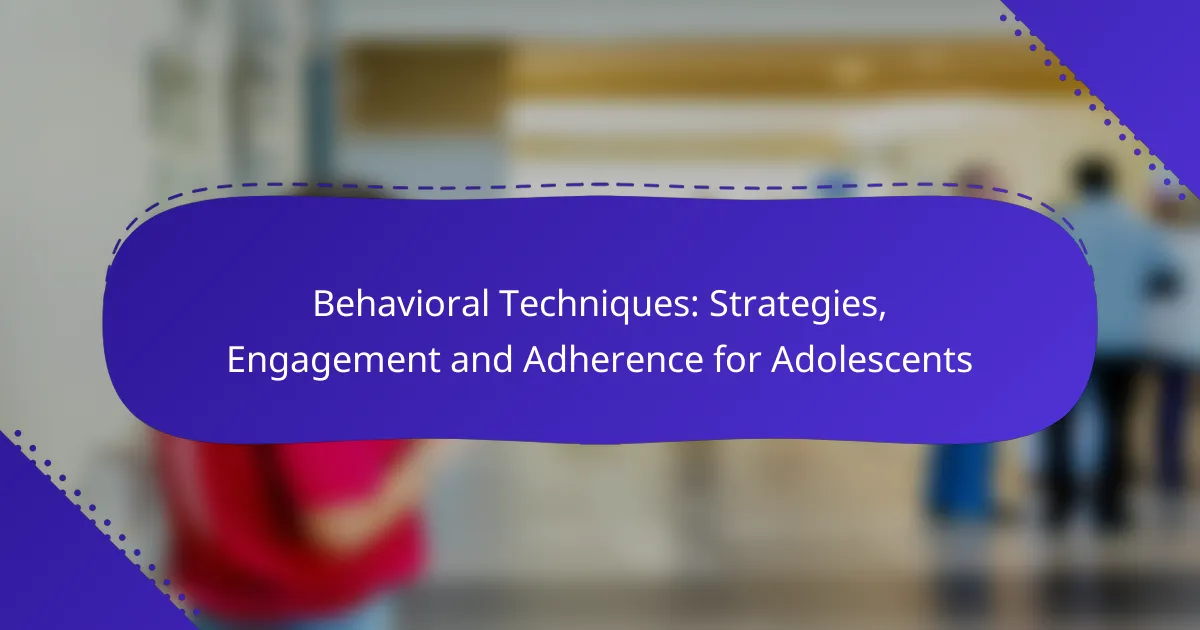Medikamentų laikymosi planas yra esminis aspektas pacientų sveikatai, ypač tiems, kurie vartoja kelis vaistus. Efektyvios strategijos, tokios kaip asmeniniai priminimai ir skaitmeninės sveikatos programos, padeda pacientams tinkamai valdyti savo vaistus ir užtikrinti, kad jie būtų vartojami kaip nurodyta. Tinkamas receptų koordinavimas ir komunikacija tarp sveikatos priežiūros specialistų yra būtini norint sumažinti riziką ir pagerinti gydymo rezultatus.
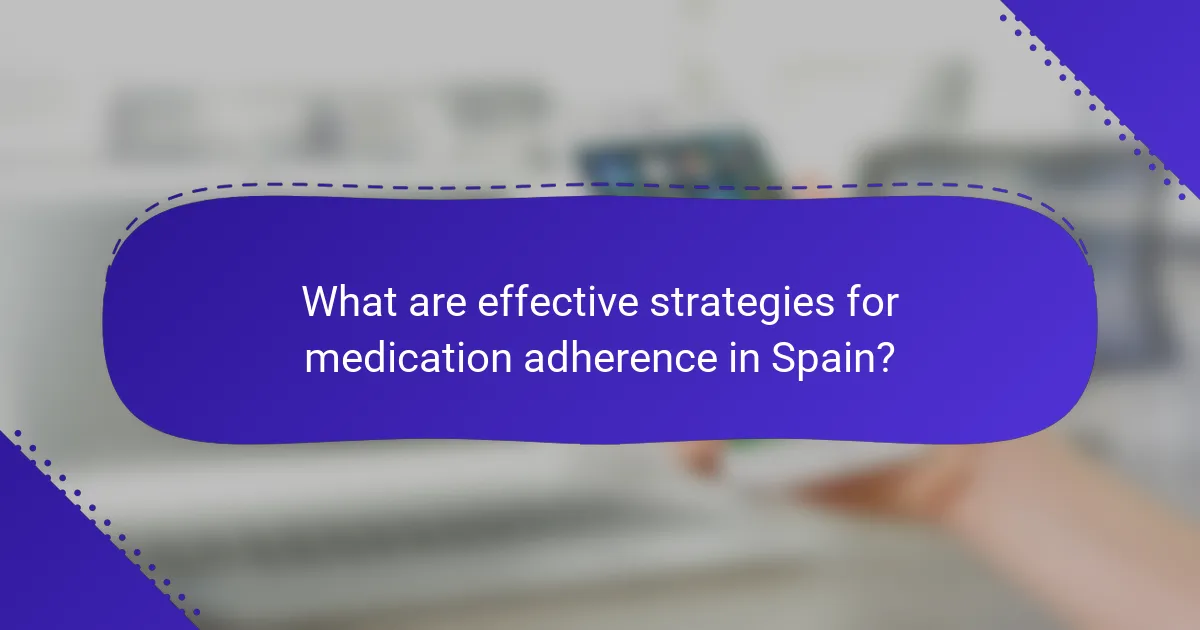
What are effective strategies for medication adherence in Spain?
Effective strategies for medication adherence in Spain include personalized reminders, digital health applications, patient education, family support, and collaboration with pharmacies. These approaches help patients manage multiple prescriptions and ensure they take their medications as directed.
Personalized medication reminders
Personalized medication reminders can significantly enhance adherence by providing tailored notifications based on individual schedules. These reminders can be set up through various methods, such as phone alerts, text messages, or even physical pillboxes with alarms.
To maximize effectiveness, reminders should be clear and specific, indicating the exact medication and dosage. Patients can also benefit from setting reminders at times that align with their daily routines, making it easier to remember to take their medications.
Digital health applications
Digital health applications offer a modern solution for managing medications. These apps can track dosages, provide reminders, and even allow users to log side effects or interactions. Many applications also feature educational resources about each medication.
When selecting an app, patients should consider user-friendliness and compatibility with their devices. Some popular apps in Spain include Medisafe and MyTherapy, which are designed to cater to various needs and preferences.
Patient education programs
Patient education programs are essential for improving understanding of medications and their importance. These programs can be offered by healthcare providers, pharmacies, or community organizations and typically cover topics such as medication purpose, potential side effects, and the importance of adherence.
Interactive workshops or one-on-one consultations can enhance learning experiences. Patients are encouraged to ask questions and express concerns, which can lead to better adherence and health outcomes.
Family support systems
Family support systems play a crucial role in medication adherence. Involving family members can help patients remember to take their medications and provide emotional encouragement. Family members can assist in organizing medications and monitoring adherence.
Establishing a support system involves open communication about the patient’s medication regimen and any challenges they face. This collaborative approach can foster a sense of accountability and motivation.
Pharmacy collaboration
Collaboration with pharmacies can enhance medication adherence through personalized services. Pharmacists can provide medication reviews, counseling, and refill reminders, ensuring that patients understand their prescriptions and how to take them correctly.
Patients should feel encouraged to engage with their pharmacists, asking questions about their medications and discussing any difficulties they encounter. Many pharmacies in Spain offer medication synchronization services, aligning refill dates to simplify management of multiple prescriptions.
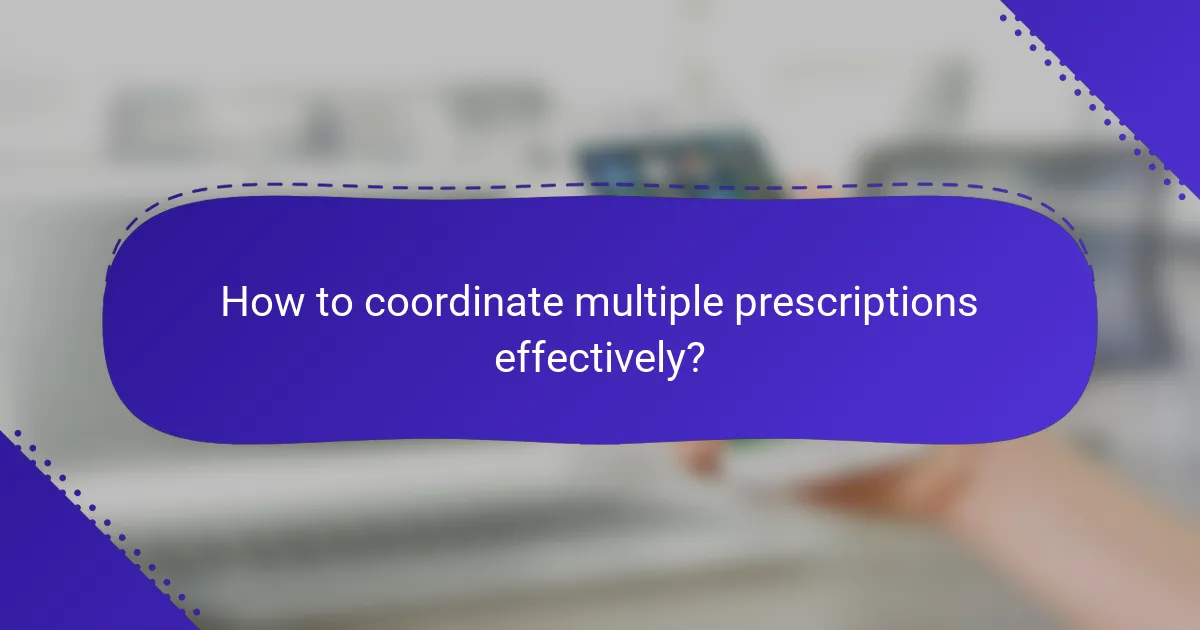
How to coordinate multiple prescriptions effectively?
Effectively coordinating multiple prescriptions involves creating a structured plan that ensures all medications are managed properly to enhance adherence and minimize risks. This includes organizing medication schedules, monitoring interactions, and facilitating communication among healthcare providers.
Centralized medication management
Centralized medication management refers to consolidating all prescriptions and their details in one accessible location, such as a pharmacy or a digital health platform. This approach helps in tracking refills, managing dosages, and preventing medication errors.
Consider using a single pharmacy for all prescriptions, as they can provide a comprehensive medication profile. This can simplify the process of checking for drug interactions and ensuring that all medications are compatible.
Regular medication reviews
Regular medication reviews are essential for assessing the effectiveness and safety of prescribed treatments. These reviews should be conducted at least annually or whenever there is a change in health status or medication.
During a medication review, healthcare providers can evaluate the necessity of each medication, adjust dosages, and discontinue any that are no longer needed. Patients should actively participate in these reviews to discuss any side effects or concerns.
Interprofessional communication
Interprofessional communication involves collaboration among various healthcare professionals, including doctors, pharmacists, and nurses, to ensure cohesive management of a patient’s medications. This communication is crucial for addressing potential issues and optimizing treatment plans.
Establishing a shared electronic health record (EHR) can facilitate real-time updates and information sharing among providers. Regular team meetings can also enhance coordination and ensure everyone is informed about the patient’s medication regimen.
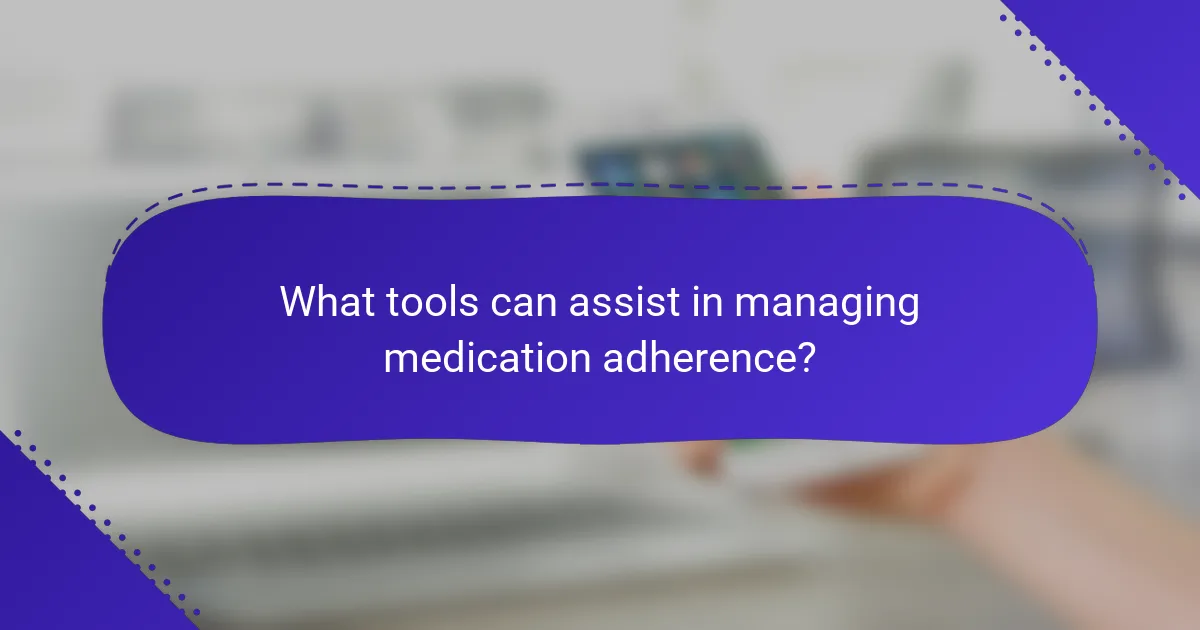
What tools can assist in managing medication adherence?
Several tools can significantly enhance medication adherence, making it easier for patients to follow their prescribed regimens. These tools include medication management software, mobile health apps, and smart pill dispensers, each offering unique features to support users in tracking and managing their medications effectively.
Medication management software
Medication management software helps healthcare providers and patients organize and monitor prescriptions. These platforms often include features like medication lists, refill reminders, and interaction checks, ensuring that patients stay informed about their treatment plans.
When selecting software, consider user-friendliness and integration with existing healthcare systems. Some popular options may offer customizable alerts and reporting tools to track adherence over time.
Mobile health apps
Mobile health apps provide a convenient way for patients to manage their medications directly from their smartphones. These apps typically allow users to set reminders, log doses, and access educational resources about their medications.
Look for apps that offer synchronization with health records or share data with healthcare providers. Many apps are free or available for a nominal fee, making them accessible for a wide range of users.
Smart pill dispensers
Smart pill dispensers are devices designed to organize and dispense medications at the correct times. They can alert users when it’s time to take their medication and may even notify caregivers if doses are missed.
When choosing a smart dispenser, consider factors like capacity, ease of use, and connectivity features. Some dispensers can connect to mobile apps, providing additional tracking and reminders, which can be particularly beneficial for those managing multiple prescriptions.
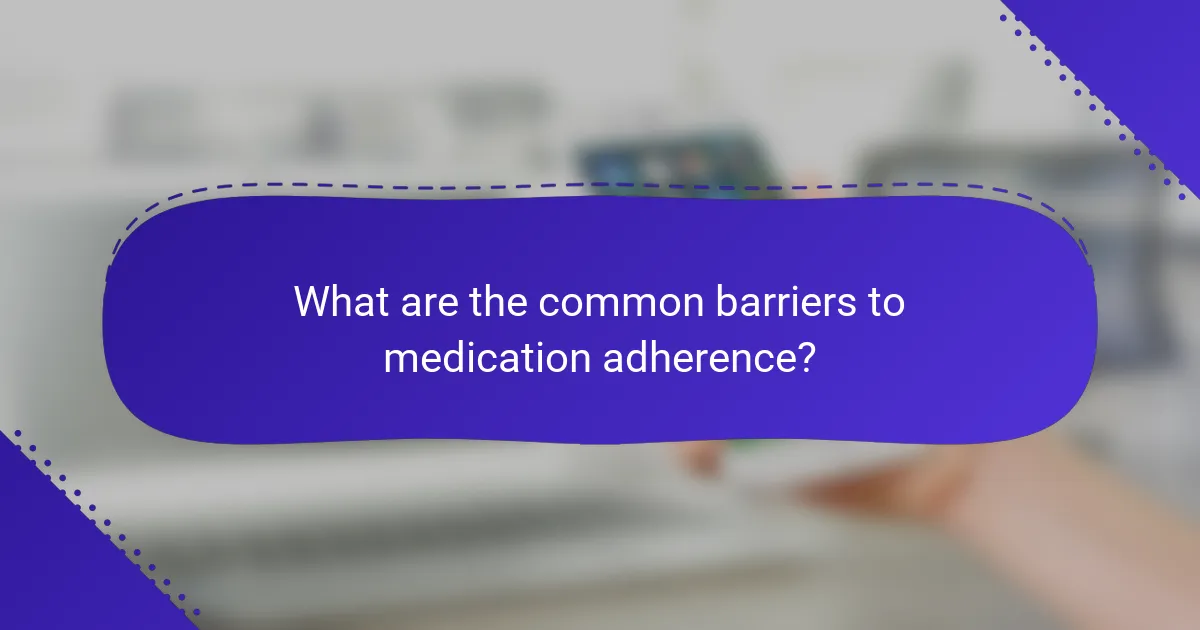
What are the common barriers to medication adherence?
Common barriers to medication adherence include complex medication regimens, side effects, and financial constraints. These obstacles can significantly impact a patient’s ability to follow their prescribed treatment plans effectively.
Complex medication regimens
Complex medication regimens can overwhelm patients, especially if they involve multiple prescriptions with varying dosages and schedules. This complexity increases the likelihood of missed doses or incorrect administration.
To manage this, patients can use pill organizers or medication management apps that provide reminders. Simplifying regimens, when possible, by combining medications or adjusting dosages can also enhance adherence.
Side effects and health literacy
Side effects from medications can deter patients from continuing their treatment. Understanding potential side effects and how to manage them is crucial for maintaining adherence.
Health literacy plays a significant role in this context. Patients who comprehend their treatment plans and the importance of adherence are more likely to report side effects accurately and seek solutions, such as discussing alternatives with their healthcare providers.
Financial constraints
Financial constraints can severely limit access to medications, making adherence challenging. High costs may lead patients to skip doses or abandon their treatment altogether.
Patients should explore options such as generic medications, patient assistance programs, or discussing cost-effective alternatives with their healthcare providers. Additionally, understanding insurance coverage can help mitigate some financial burdens associated with multiple prescriptions.
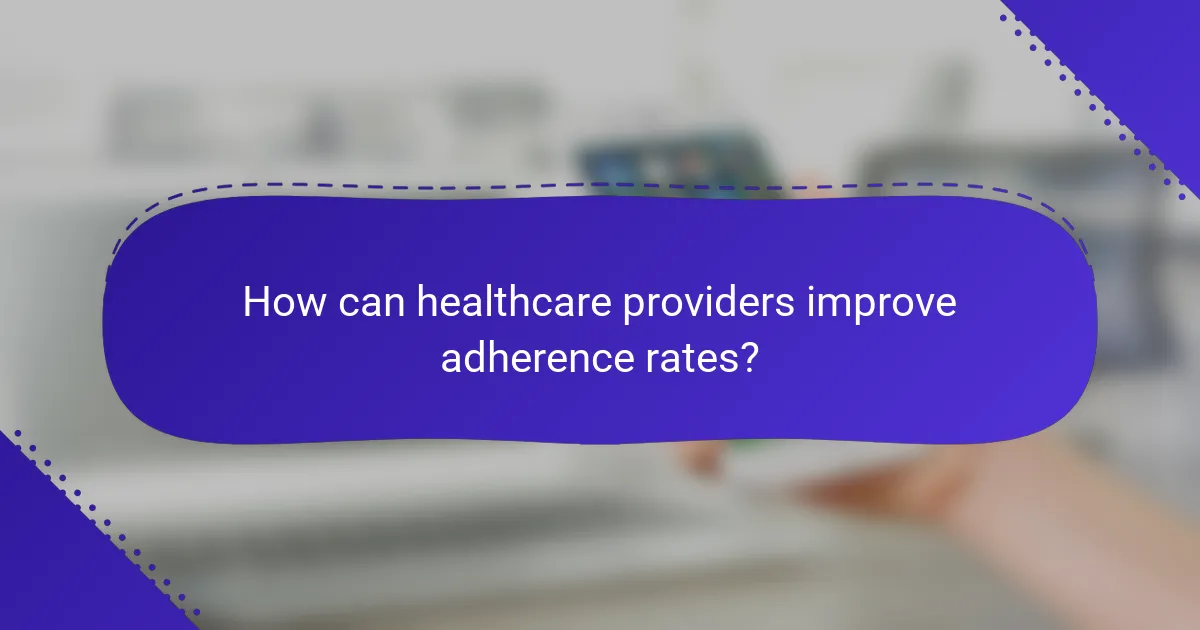
How can healthcare providers improve adherence rates?
Healthcare providers can enhance medication adherence rates by implementing structured strategies that engage patients, ensure follow-up, and tailor communication. These approaches help address barriers to adherence and foster a supportive environment for patients managing multiple prescriptions.
Patient engagement strategies
Engaging patients in their treatment plans is crucial for improving adherence. Providers can encourage patients to ask questions and express concerns about their medications, which fosters a sense of ownership over their health. Techniques such as motivational interviewing can help patients identify personal reasons for adhering to their medication regimens.
Additionally, incorporating technology, like mobile apps or reminders, can facilitate better tracking of medication schedules. Simple tools can remind patients when to take their medications, which is particularly beneficial for those with complex regimens.
Follow-up consultations
Regular follow-up consultations are essential for monitoring adherence and addressing any issues that arise. These meetings provide an opportunity for healthcare providers to assess how well patients are managing their medications and to make necessary adjustments. Scheduling follow-ups every few weeks or monthly can help maintain open lines of communication.
During these consultations, providers should review the patient’s medication list, discuss any side effects, and reinforce the importance of adherence. This ongoing support can significantly improve patients’ commitment to their treatment plans.
Tailored communication
Tailoring communication to meet the individual needs of patients can greatly enhance adherence. Providers should consider factors such as literacy levels, cultural backgrounds, and personal preferences when discussing medications. Using clear, simple language and visual aids can help ensure that patients fully understand their treatment plans.
Moreover, personalized communication can involve adjusting the frequency and method of contact. Some patients may prefer phone calls, while others might respond better to text messages or emails. Understanding these preferences can lead to more effective interactions and improved adherence rates.
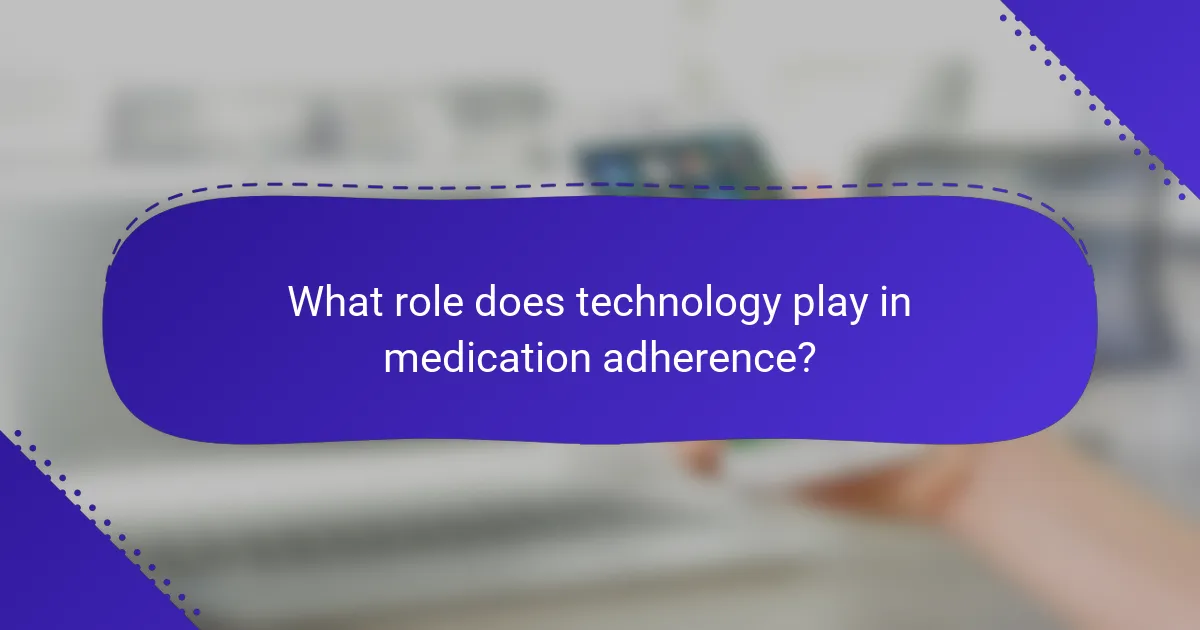
What role does technology play in medication adherence?
Technology plays a crucial role in enhancing medication adherence by providing tools and systems that help patients manage their prescriptions effectively. Digital solutions such as reminders, telehealth services, and medication management apps facilitate better communication between patients and healthcare providers, ultimately leading to improved health outcomes.
Telehealth consultations
Telehealth consultations allow patients to engage with healthcare professionals remotely, making it easier to discuss medication management without the need for in-person visits. This convenience can significantly improve adherence, especially for those with mobility issues or those living in remote areas.
During a telehealth session, healthcare providers can review a patient’s medication list, address any concerns, and provide personalized advice on how to take medications correctly. This direct interaction can reinforce the importance of adherence and help identify potential barriers.
To maximize the benefits of telehealth consultations, patients should ensure they have a stable internet connection and prepare a list of questions or concerns beforehand. Regular follow-ups via telehealth can also help maintain accountability and encourage consistent medication use.


